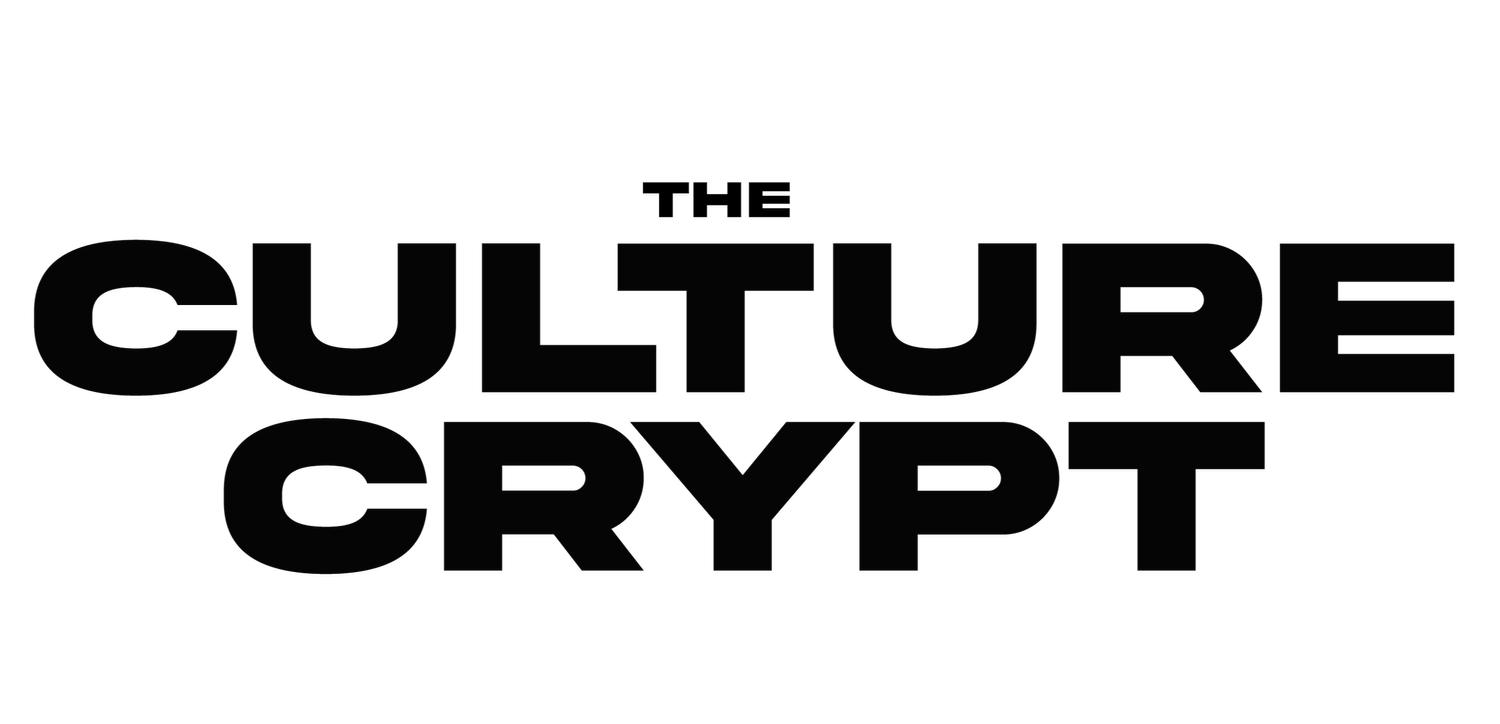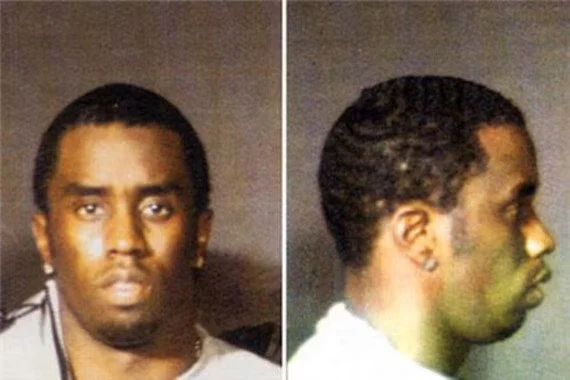Breaking the Silence: Allegations, Accountability, and Misogynoir in Black Entertainment
The Black bourgeoisie has a problem…
As the year draws to a close, the cultural landscape feels weightier than ever. Allegations against high-profile figures have sparked conversations that ripple far beyond the headlines. While cases like actor Armie Hammer's controversies and rapper T.I.'s legal battles dominated earlier in the year, the fundamental cultural shift began in January when comedian Kat Williams hinted at what would unfold into one of the year's most explosive revelations.
Shortly after CNN aired a clip proving Sean "Diddy" Combs' abuse of his then-girlfriend, singer and model Cassie Ventura, a deluge of revelations about his history of alleged violence and exploitation came to light. The case, which ignited widespread discussions about the mistreatment of Black women in Black Hollywood, also underscored Diddy’s long-standing pattern of troubling behaviour.
Diddy has a precedent for violence and exploitation, both proven and alleged, that extends far beyond the Cassie revelations. In 1999, the infamous nightclub shooting involving Shyne tied Diddy to a chaotic and violent incident that ultimately led to the imprisonment of his then-protégé, rapper Shyne, while Diddy walked away unscathed.
In 2013, he reportedly attacked his son's football coach with a kettlebell in a heated dispute. There's also the infamous altercation with J. Cole at a 2013 MTV VMAs after-party, where sources claimed the two scuffled over a perceived slight against Diddy's then-girlfriend, Cassie.
Beyond physical violence, Diddy has been accused of financially exploiting his artists for decades. Many Bad Boy Records alumni, including Mase, have accused him of withholding royalties and trapping them in exploitative contracts. Mase publicly called out Diddy, saying, "You bought it for $20K and now you're selling it for millions." These allegations are compounded by claims that Diddy prioritised his financial gain at the expense of his artists' creative control and livelihoods, fostering a toxic culture within Bad Boy Records.
The Cassie case has amplified these conversations, shedding light on how Diddy's alleged history of abuse, exploitation, and unchecked power reflects a larger issue in the entertainment industry. It's a reminder that systemic change is necessary to protect Black artists and women from cycles of violence and mistreatment.
Most recently, Combs, 55, has been incarcerated at the Metropolitan Detention Center in Brooklyn since September on charges of sex trafficking and racketeering. He faces over 20 civil lawsuits, including one from LaTroya Grayson, who claims she was drugged, sexually assaulted, and robbed at a 2006 promotional party hosted by Combs.
Grayson—who was 23 at the time—alleges that after accepting drinks from waitresses, she lost consciousness and woke up in the hospital with no memory of the assault. Combs' companies and several others are named in the suit, and Grayson is seeking damages for psychological trauma and lost employment.
At the same time, Combs' legal team is involved in a high-profile dispute with rapper-entrepreneur Jay-Z's representatives, as both rappers face accusations related to sexual misconduct, including a separate rape lawsuit.
The recent allegations against Jay-Z have ignited widespread controversy, linking him to crimes allegedly committed over two decades ago. The lawsuit accuses Jay-Z and Sean "Diddy" Combs of drugging and raping a 13-year-old girl at a 2000 house party following the MTV Video Music Awards in New York.
The accuser, identified as "Jane Doe", claims the assault occurred at a gathering attended by an unnamed female celebrity. Jay-Z has categorically denied the allegations, describing the lawsuit as a "blackmail attempt" in a social media statement. He stated his intent not to settle and called on the accuser to file a criminal complaint instead.
Public scrutiny has intensified over Jay-Z's past associations, including his professional collaborations with the now-disgraced R&B singer R. Kelly. Despite reportedly despising each other, according to a 2004 Pitchfork review, the two artists released the poorly titled The Best of Both Worlds in 2002 and followed it up with Unfinished Business in 2004—a project cobbled together from B-sides and unreleased tracks. Both albums were mired in controversy, as Kelly was embroiled in legal battles over allegations of sexual misconduct, including his unlawful marriage to Aaliyah when she was just 15 years old.
At the time, Kelly's career seemed on the brink of collapse following his 2002 child pornography trial. Yet, the success of his 2003 single "Ignition (Remix)" reignited his commercial appeal, prompting a temporary moral erasure of his well-documented history. Arguably, Black entertainment (then and now) is ever drawn to power and profit and appeared willing to forgive past transgressions in favour of capitalising on Kelly's newfound momentum. This dynamic reflected a broader issue within Black entertainment—its tendency to prioritise financial opportunity and cultural dominance over accountability.
Jay-Z's involvement with Kelly also illustrates this moral ambiguity. While the two collaborated for years, their relationship soured dramatically during The Best of Both Worlds tour. The tour's chaotic end, marred by accusations of sabotage and lawsuits on both sides, publicly severed their professional ties. Yet, the fallout does little to erase the fact that Jay-Z once aligned himself with R. Kelly despite the controversies surrounding him. Whether or not the accusations against Jay-Z hold weight, his association and apparent affinity for those linked to abuse remain difficult to overlook.
Now, in light of the current accusations, the Roc Nation leader's past association with Kelly raises uncomfortable questions about the entertainment industry's complicity in protecting and amplifying those accused of abuse when it benefits their bottom line.
Meanwhile, "Jane Doe" has reportedly acknowledged inconsistencies in her account, adding another layer of complexity to the case. While public opinion remains divided, the allegations against Jay-Z and his past associations with figures like R. Kelly and Sean Combs underscore the broader reckoning within the entertainment industry regarding power, accountability, and abuse.
But the statement he released to profess his innocence only opened him up to more scrutiny. He seemed to weaponise the existence of his wife, Beyoncé, who is host to millions of loyal fans, and his young daughter, Blue-Ivy, while presenting himself as a 'young-Black man' merely trying to attain success despite his now billionaire status.
The bravery of victims to speak out against powerful and influential 'icons' follows the trend of an emerging cultural shift in the attitudes towards women suffering sexual assault in the workplace of entertainment over the last decade. The Harvey Weinstein case marked a significant turning point in Hollywood and globally, catalysing the #MeToo movement, which saw millions of women sharing their experiences with sexual violence and highlighting the prevalence of such assaults in Hollywood.
However, while the #MeToo movement has increased awareness and prompted numerous allegations against powerful men, actual convictions have been relatively few. Many cases have been settled out of court or resulted in acquittals (like Combs' initial lawsuit with Cassie). As such, this calls into question the priorities of both the judicial court and the court of public opinion when assigning blame or protecting symbols of wealth and affluence in these instances.
Across the diaspora, there are those in the Black community clinging onto notions of a 'Black Wall Street' as an explanation for questioning the validity of the allegations made against famous tycoons. For many, the de-pedestrianisation of those previously looked up to regarding their talent or social and economic standing stands to disadvantage the Black community on the whole as we 'tear Black men down'. But amid these criticisms, the suffering of young Black girls and women is entirely lost.
In reality, it would appear that the entertainment industries, specifically music and, in this case, hip-hop, thrive on both the silencing of and subjugation of Black female voices.
“Where victims are typically portrayed as being in pursuit of money rather than justice and are over-sexualised to downplay the symptoms of their abuse, the industry perpetuates stereotypes about Black women being materialistic and hypersexual to facilitate the survival of perpetrators.”
In an article for The Kansas City Defender, Breanna Bonner underscores the lack of public sympathy shown toward Megan Thee Stallion following her shooting by artist Tory Lanez: "Her sexual history became intertwined with her moral innocence and was weaponised to portray her as a liar, a whore, and a woman intent on tearing down Black men."
Grappling with the industry's history of exploiting Black women appears to be the only vehicle for change here. Of course, legal consequences are crucial regarding justice, but perhaps equally importantly, perpetrators must face accountability from their communities. The normalisation of misogyny doesn't just occur at the 'top'.
Still, it is instead a daily occurrence within the Black community, where instances of abuse in circles of power merely broaden the scope of what occurs behind closed doors, within family structures, and between friends.
Accountability in hip-hop and beyond requires a reckoning with individual perpetrators and the systems that enable their actions. The abuse of power within hip-hop and Black arts isn't a recent phenomenon. 'Pioneering' figures of the early 1980s like Afrika Bambaataa, whose legacy has been tainted by allegations of sexual abuse, and Russell Simmons, co-founder of Def Jam Records, who faces multiple accusations, illustrate a long-standing culture of silence and complicity that has permeated the industry.
Even as more recent cases involving Diddy come to light, they underscore how Black entertainment has historically prioritised power and profit over justice. The cultural reckoning must focus on dismantling these toxic dynamics, centring the voices and protection of Black women, whose suffering has long been ignored in favour of preserving the reputations of powerful men. As we've seen repeatedly, the heroes many idolise can often be perpetrators of the harm we must confront.



